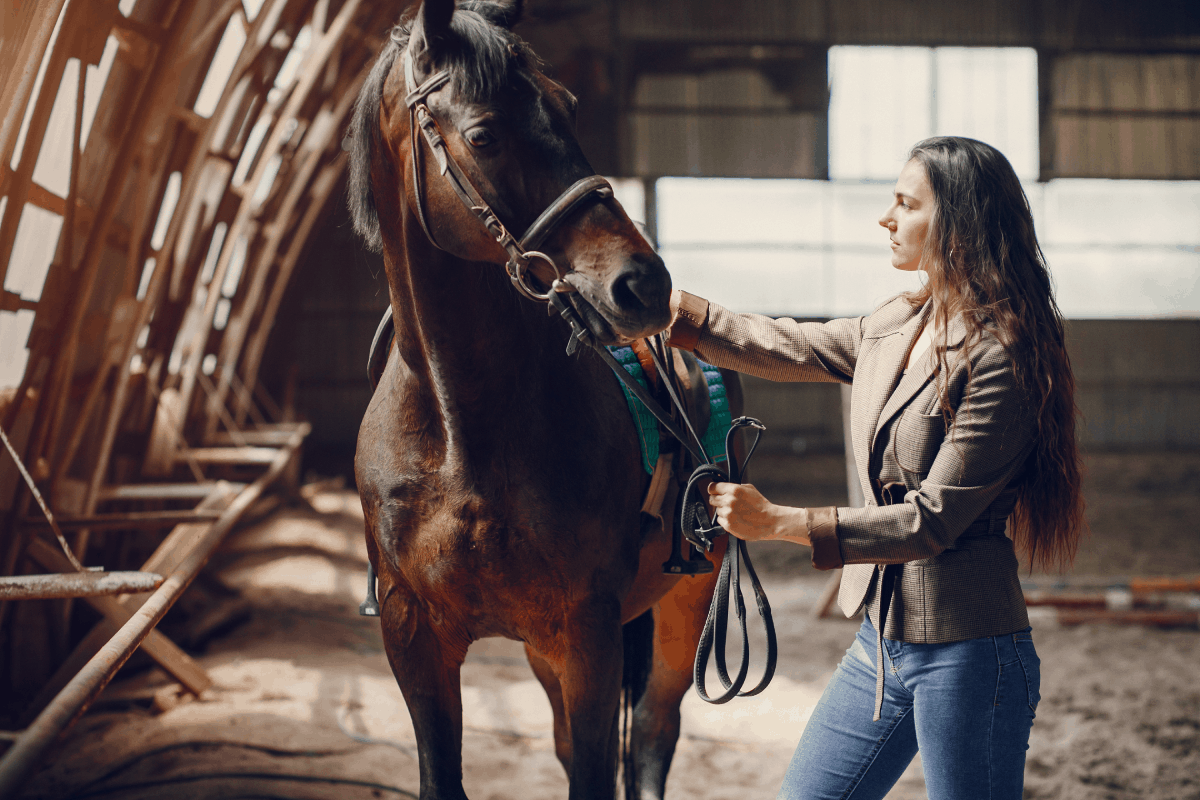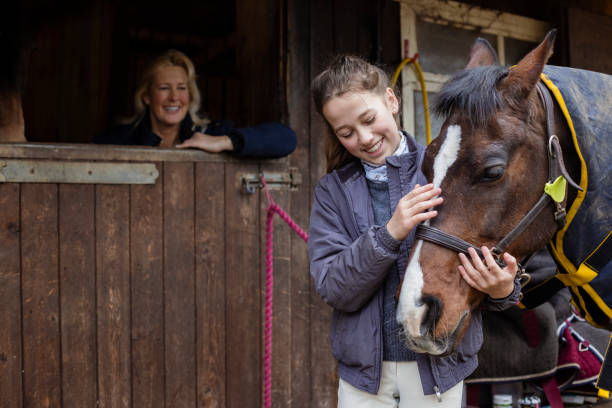Caring for senior horses requires special attention, especially when it comes to their health. Understanding how often vet checks for senior horses is crucial for maintaining their well-being. As horses age, their needs change significantly, necessitating more frequent veterinary assessments to ensure they remain healthy and comfortable in their golden years.

The Importance of Regular Vet Checks for Senior Horses
Regular veterinary checks are vital for senior horses as they help in early detection of potential health issues. Just like humans, horses experience age-related health challenges. Routine vet visits enable early diagnosis and intervention, which can significantly improve a horse’s quality of life.
Identifying Age-Related Health Issues
Senior horses are prone to various health problems such as dental issues, arthritis, and metabolic disorders. During a veterinary exam, these issues can be identified and treated promptly. This proactive approach prevents the progression of diseases that can otherwise lead to discomfort or complications.
Customized Health Plans
Veterinarians can create tailored health plans during these checks. These plans might include dietary adjustments, exercise routines, and medication schedules that cater specifically to the needs of senior horses. A well-structured plan helps maintain their health and vitality.
Frequency of Veterinary Visits for Senior Horses
So, how often should vet checks for senior horses occur? Ideally, senior horses should have veterinary examinations at least twice a year. However, depending on the horse’s specific health needs, more frequent visits might be necessary.
Bi-annual Check-ups
Bi-annual check-ups are recommended as a baseline for senior horses. These visits allow the vet to monitor the horse’s overall health, adjust care plans, and address any emerging issues. Regular monitoring helps in managing chronic conditions effectively.
Additional Visits
Additional visits might be required if the horse shows signs of illness or if there are specific health concerns. In cases where a horse has a chronic condition, the veterinarian might suggest more frequent check-ups to monitor progress and adjust treatments.
What to Expect During a Vet Check
Understanding what happens during a vet check can help horse owners feel more prepared. A typical check-up involves a thorough physical examination, dental assessment, and discussions about diet and exercise.
Physical Examination
The vet will conduct a comprehensive physical examination, checking the horse’s weight, coat condition, and vital signs. This examination helps in identifying any physical abnormalities or signs of discomfort.
Dental Assessment
Dental health is a significant concern for senior horses. During the check-up, the vet will assess the horse’s teeth and gums, looking for signs of wear, infections, or abnormalities. Proper dental care is crucial for maintaining a horse’s overall health.
Creating a Supportive Environment
Beyond regular vet visits, creating a supportive environment is essential for the well-being of senior horses. This includes appropriate nutrition, comfortable housing, and regular exercise.
Nutrition
Senior horses may have different dietary needs compared to younger horses. It’s important to provide a balanced diet that meets their nutritional requirements. Consulting with a veterinarian can help in designing the right diet plan.
Comfortable Housing
Ensuring that senior horses have comfortable and safe housing is crucial. This might involve providing proper bedding and ensuring the stable is free from hazards. For more tips on horse bedding, check out this article on best bedding for senior horses.
Supporting Mental and Emotional Health
Mental and emotional health is just as important as physical health. Engaging activities and companionship can greatly benefit senior horses.
Engaging Activities
Providing opportunities for mental stimulation can help keep senior horses engaged and happy. Simple activities like grooming and walking can be very beneficial. Explore more on senior horse grooming for ideas.
Companionship
Horses are social animals and thrive in the company of other horses. Ensuring they have a companion can improve their mental well-being and reduce stress.
Conclusion
In conclusion, understanding how often vet checks for senior horses should occur is key to maintaining their health and happiness. Regular veterinary care, combined with proper nutrition, housing, and social interaction, can help senior horses enjoy a fulfilling life. For more insights on caring for older horses, consider visiting Blue Cross.

FAQs
How often should I schedule vet visits for my senior horse?
It’s recommended to schedule vet visits at least twice a year for senior horses. However, depending on their health, more frequent visits might be necessary.
What are the common health issues in senior horses?
Common health issues in senior horses include dental problems, arthritis, and metabolic disorders. Regular vet checks help in early identification and management of these issues.
How can I support my senior horse’s mental health?
Engaging activities, companionship, and ensuring a stress-free environment can significantly support your horse’s mental health. For more tips, explore senior horse grooming.
This article contains affiliate links. We may earn a commission at no extra cost to you.
